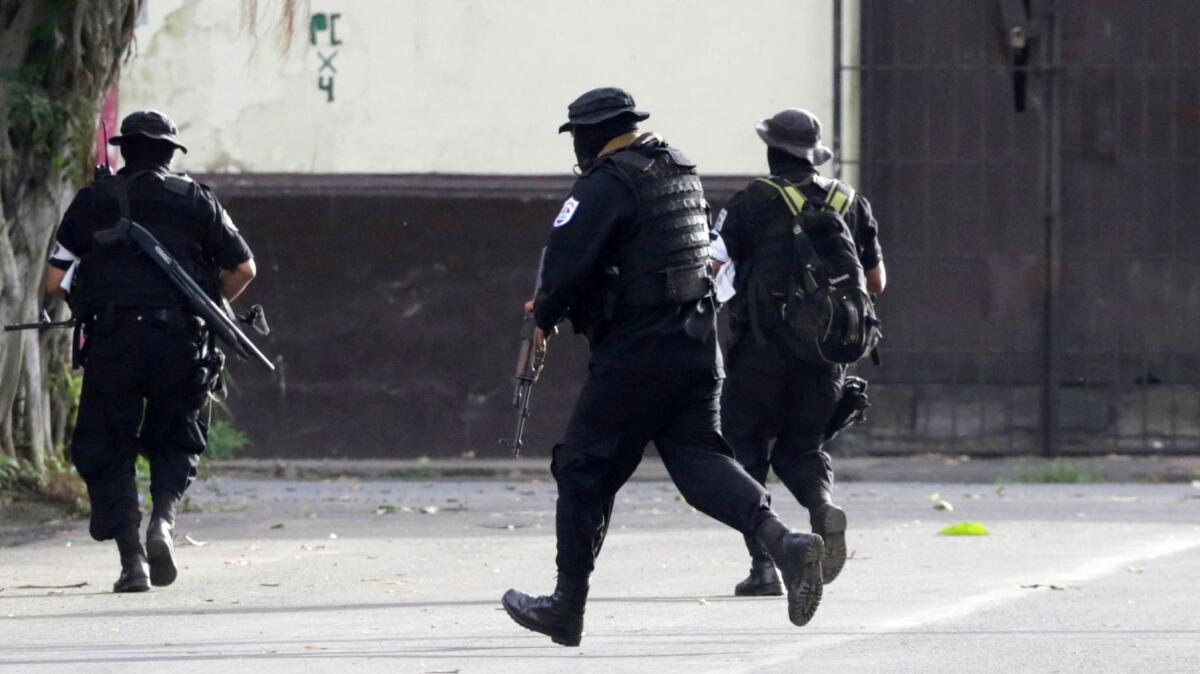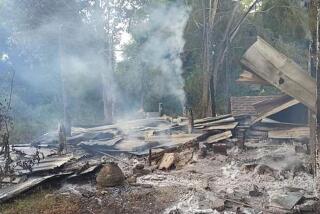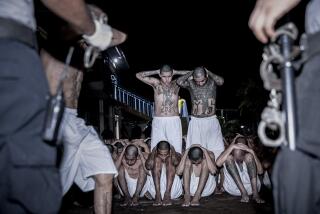Nicaraguan government behind widespread repression, U.N. says

A United Nations report released Wednesday on four months of unrest in Nicaragua describes a comprehensive effort of repression by the government that extends from the streets to the courts.
The report by the Office of the U.N. High Commissioner for Human Rights calls on the government of President Daniel Ortega to immediately halt the persecution of protesters and disarm the masked civilians who have been responsible for many of the killings and arbitrary detentions.
More than 300 people have been killed in violence since mid-April in the Central American nation. Neighboring Costa Rica has been flooded with thousands of requests for asylum by people fleeing Nicaragua.
The report describes illegal arrests, torture and closed trials. Doctors, professors and judges who have spoken out or protested have been dismissed from their jobs to discourage people from participating in or supporting the protests.
“The level of persecution is such that many of those who have participated in the protests, defended the rights of the protesters, or simply expressed dissenting opinion, have been forced to hide, have left Nicaragua or are trying to do so,” according to the U.N. report.
Zeid Raad Hussein, the U.N. human rights chief, told reporters in Geneva that “repression and retaliation against demonstrators continue in Nicaragua as the world looks away.” He urged the international community to take “concrete action to prevent the current crisis in Nicaragua from descending into deeper social and political turmoil.”
Ortega’s government dismissed the report as baseless and relying on anti-government media accounts. It denied accusations of excessive use of force against protesters.
“The report is biased and slanted with subjective assertions,” the government said in its response to the U.N. office, also noting that it included no mention of the attempted coup d’etat alleged by Ortega.
In mid-April, retirees and students marched to protest cuts to Nicaragua’s social security benefits decreed by Ortega. They were met with violence from young government supporters and riot police. The president eventually retracted the changes, but protests quickly evolved into calls for him to step down.
University students across the country led the protest effort and took over a number of campuses. But in July the government unleashed heavily armed civilian forces that worked with police to clear the barricades that had been erected on strategic highways and throughout some neighborhoods.
There was a short-lived dialogue between the government and opponents, but Ortega accused the Roman Catholic bishops mediating the talks of being part of a coup conspiracy and talks have not resumed. The president has blamed international agents and internal enemies of conspiring to overthrow his government. He has said he will not step down before his term ends in 2021.
Protests continue, but they are smaller as student leaders have been arrested or forced into hiding or exile.
More to Read
Sign up for Essential California
The most important California stories and recommendations in your inbox every morning.
You may occasionally receive promotional content from the Los Angeles Times.










